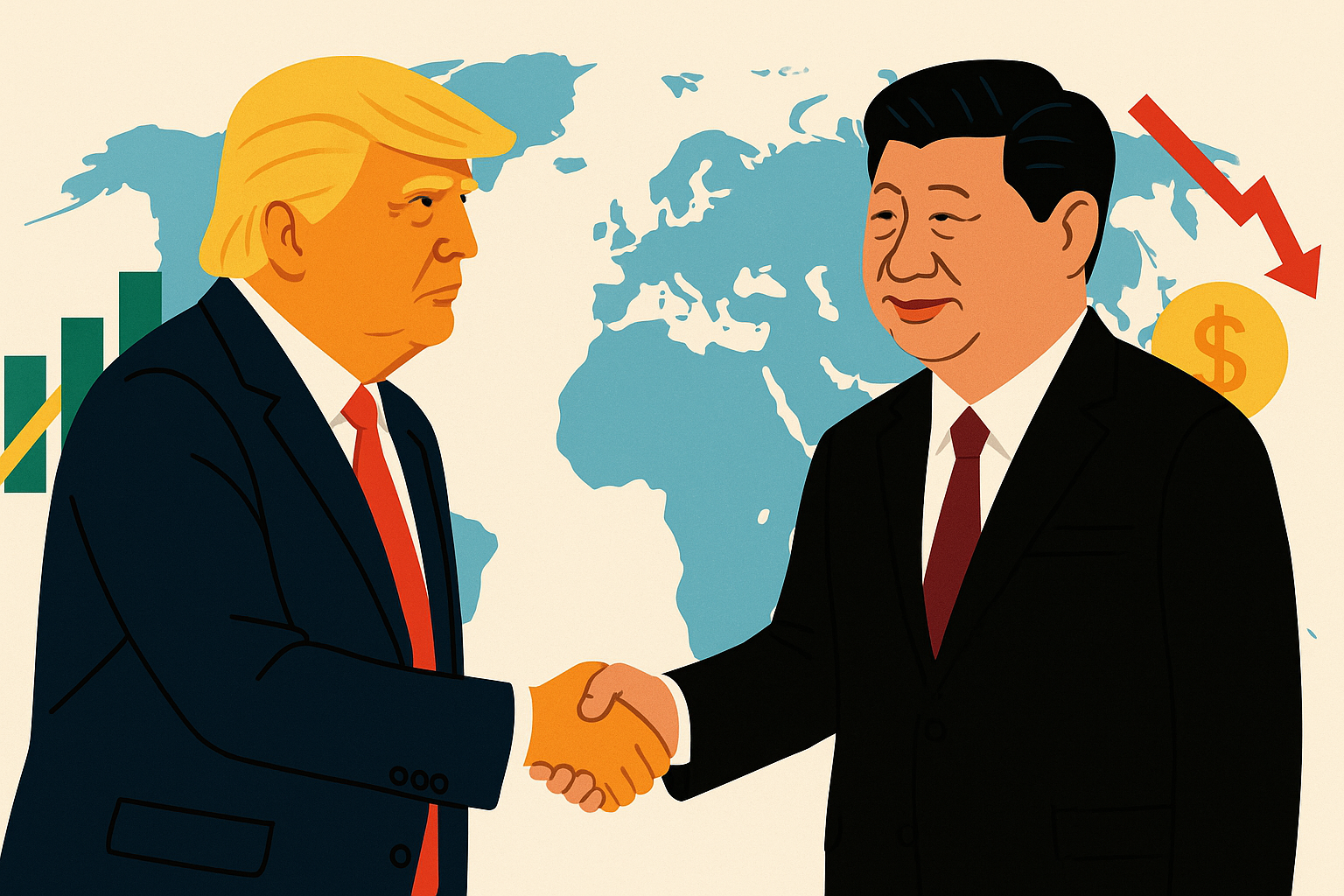In a geopolitical environment riddled with uncertainty, a rare spark of optimism emerged on June 6th: former U.S. President Donald Trump and Chinese President Xi Jinping engaged in a direct phone conversation—marking the first high-level contact between the two economic giants in over a year. The outcome? A mutual agreement to resume high-level trade negotiations, beginning with ministerial-level talks scheduled for June 9th in London.
From Deadlock to Dialogue
This sudden diplomatic shift comes at a critical juncture. Since early 2024, U.S.–China relations have been strained by escalating tariff measures, export restrictions on rare earth elements, and competing global infrastructure projects. The dialogue is a calculated move by both leaders, signaling a willingness—albeit cautious—to prevent further economic fragmentation.
Trump, poised to return to the presidency in 2025, is eager to demonstrate global leadership while appeasing American industries burdened by retaliatory tariffs. Xi, facing slowed domestic growth and weakening foreign investment, seeks to stabilize relations with Western markets without appearing to compromise China’s sovereignty.
Why Markets Care
Global markets reacted favorably to the news. Asian indices rose by 1.8% on average the morning after the call, and both the S&P 500 and Dow Jones saw modest gains. Currency markets also reflected optimism: the yuan rebounded slightly against the dollar, and the VIX volatility index dipped to its lowest level in two months.
Investors interpret the renewed talks as a sign that the two largest economies are not entirely committed to economic decoupling—a theme that has dominated headlines since 2022.
Caution Beyond the Headlines
While the diplomatic gesture is welcome, substance remains in question. Analysts warn that the fundamental conflicts—technology access, military influence in the Indo-Pacific, and ideological rivalry—are unlikely to be resolved through trade talks alone. What’s more, the July 9 expiration of a temporary suspension on tariffs looms large. Without measurable progress in London, renewed tariffs could re-ignite volatility.
Moreover, no mention was made of broader geopolitical flashpoints: Ukraine, Taiwan, or Iran. This suggests the focus remains narrowly economic—for now.
Strategic Takeaways
- Short-term relief: The move injects market confidence and gives multinational firms breathing room to plan supply chains for Q3 and Q4.
- Election optics: Trump leverages the talks as evidence of his “America First but Pragmatic” campaign approach.
- China’s balancing act: Xi projects global cooperation while managing internal political pressures amid youth unemployment and deflation concerns.
- London as neutral ground: Holding talks in London, rather than Beijing or Washington, reflects a careful choice to keep symbolism low and flexibility high.
Conclusion
The June 6 Trump–Xi phone call may not change the structural tensions underpinning the world’s most pivotal bilateral relationship, but it does mark a strategic pause in the rhetoric-driven confrontation of the past two years. For now, the global economy exhales—and watches.
“This isn’t détente—it’s a détente-shaped placeholder,” quipped one analyst. But in a world craving stability, even placeholders can be powerful.


